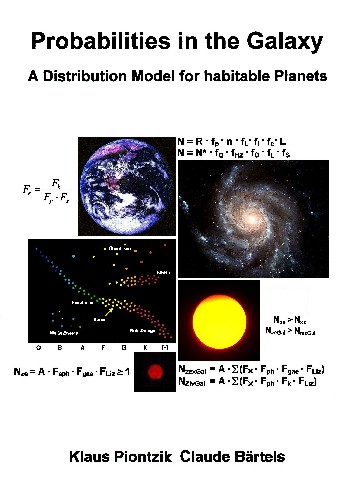| As can be seen from the examples
of the M stars and the approximately earth-great planets,
there are good chances for the existence of life,
intelligence and civilization, despite small initial
probabilities. This is due to the large number of stars
present. There are simply so many that even states of
lower probability can manifest themselves in star systems
and appear in sufficient numbers overall. If life, intelligence and civilization in this universe have a probability greater than zero, then (due to the number of stars) there are also several technological civilizations - and not just one. The probability that a species is the only one in the universe is therefore close to zero, so it is improbable. As can be seen in the previous treatise, although low but significant probabilities for the occurrence of life, intelligence and civilization can be deduced. So at least a few dozen technological civilizations are to be expected in our galaxy alone. The basic data of this paper are based on the observations of the Kepler telescope, i.e. on the transit method. According to chapter 1.2, the geometric probability FK of a transit (seen from the earth) is 0.47 % = 1/213 %. Therefore, there could be a maximum of about 213 times as many systems with planets as determined in the paper. Extrapolated to the universe, it means that this universe is teeming with life, so to speak. life, intelligence and civilization are the rule and are accommodated as constant parts of the universe. This results in an overall result: It
is rather improbable that we are alone in the galaxy. Then it can be concluded for the entire universe: It is improbable that we are alone in the universe. |

|
176 sides, of them 64 in Color 76 pictures 11 tables Production and publishing: Books on Demand GmbH, Norderstedt ISBN 9-783-7528-5524-1 Price: 22 Euro |
|